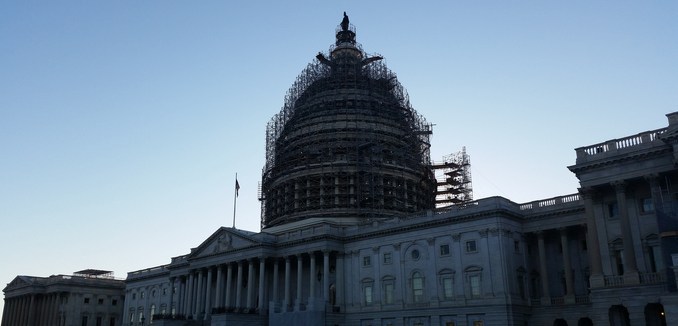The Obama administration’s plan to issue visa waivers to a broad range of visitors to the United States, including those who have traveled to Iran, was sharply criticized by House leaders Thursday, who said in a letter to the White House that doing so “renders both the terms ‘national security’ and ‘law enforcement’ virtually meaningless.”
The letter, which was signed by House Majority Leader Kevin McCarthy (R – Calif.), House Foreign Affairs Committee Chairman Ed Royce (R – Calif.), House Judiciary Committee Chairman Bob Goodlatte (R – Va.), and House Homeland Security Committee Chairman Michael McCaul (R – Texas), said that the administration’s plan to carve out a wide range of exemptions to the Visa Waiver Program was “contrary” to the language of the bill. The letter was also signed by Rep. Candice Miller (R – Mich.), who authored the The Visa Waiver Program Improvement and Terrorist Travel Prevention Act of 2015, which granted automatic visa waivers to residents of 38 countries but required full visa applications from residents of, or recent visitors to, countries considered to be terrorism hotspots, including Syria, Iraq and Iran.
The Department of Homeland Security announced last week that the State Department would issue visa waivers to people who traveled to those countries if they did so as part of humanitarian work, journalism or “legitimate business-related purposes.” The congressional leaders responded by saying in their letter that such exemptions “were not provided for in the law, are contrary to congressional intent, and are in breach of the agreement we reached with members of [the Obama] Administration.
These exemptions are contrary to the plain language of the statute. The national security and law enforcement exceptions were principally designed to allow for the continued surveillance and investigation of individuals of concern. However, we are deeply troubled because the exemptions announced by the Administration were discussed, at length, during negotiations and were explicitly rejected by Members of Congress. Administration officials from the [State Department], DHS, the Executive Office of the President, as well as Congressional staff from both parties, were intricately involved in the negotiation of this legislation.
The House leaders added that despite the fact that the White House initially supported the new restrictions to the Visa Waiver Program, they chose “to read the narrow national security and law enforcement exceptions in such a broad way that it renders both the terms ‘national security’ and ‘law enforcement’ virtually meaningless. These actions are inappropriate and violate not only the agreement we reached but the law itself.”
Because of these issues, the letter called on the Department of Homeland Security to provide Congress with a monthly account of all waivers granted by the State Department and the reasons the exemptions were granted.
Shortly after the legislation was passed and signed into law, Iranian Foreign Minister Mohammad Javad Zarif told Secretary of State John Kerry that the restriction on travelers to Iran would violate the terms of the nuclear deal they had reached in July. Despite having testified to Congress that the nuclear deal only limited the United States from imposing new nuclear-related sanctions but not those for terrorism, Kerry wrote a letter to Zarif assuring him that the United States would issue visa waivers for business travelers who had been to Iran. Iran continues to be designated by the State Department as a leading state sponsor of terror.
Kerry’s letter to Zarif prompted a public letter last month from McCarthy, Royce, Goodlatte, McCaul, and Miller, pointing out that visa waiver exemptions for business purposes were discussed and rejected during the bill creation process.
Based on the letter to Foreign Minister Zarif, we are deeply concerned that the narrowly-intended use of the waiver authority will be ignored in favor of applying the waiver authority to those who have traveled to Iran for business purposes. Not only was such an exemption from the law not included in the legislation, it was specifically discussed during bill negotiations with Administration staff and expressly refused by Members of Congress despite the inclusion of two other exemptions. This letter serves to dispel any notion that the Congressional intent would allow the waiver authority to be used for business travelers.
State Department spokesperson Mark Toner acknowledged last week that the waivers would be granted for people “who travel to these countries for legitimate business-related purposes.”
Speaker of the House Paul Ryan announced on Friday that the chamber will vote next week on a bill requiring the president to certify that any Iranian individual or entity that he wishes to remove from the Treasury Department’s sanctions list is no longer involved in terrorism, human rights abuses or proliferation concerns.
[Photo: soccerdhg / Flickr ]




